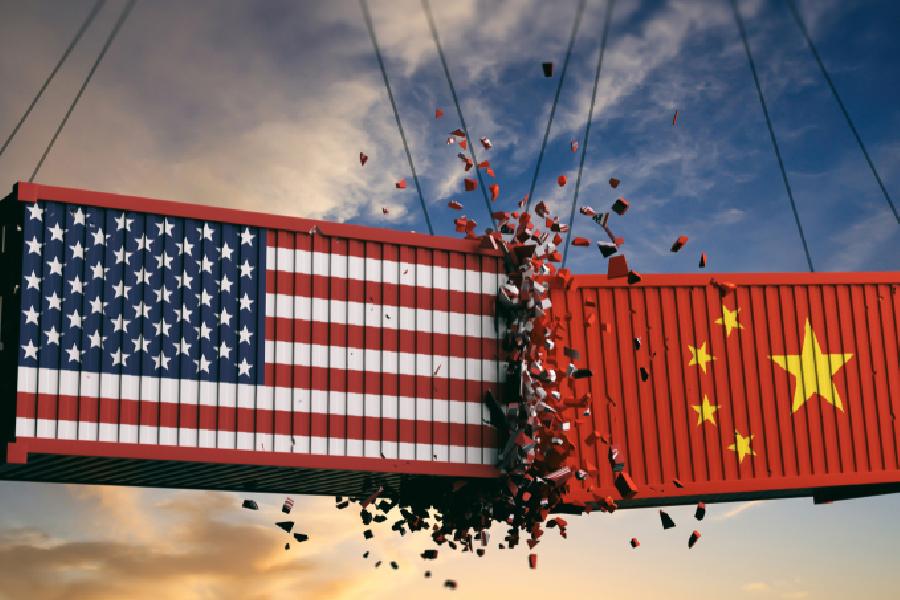India’s trade landscape is poised for significant disruption as the US intensifies its trade actions against China.
The US is considering revoking China’s Most Favored Nation (MFN) status and imposing punitive measures on Chinese goods, creating both opportunities and challenges for India.
While the US’s actions could benefit India by boosting exports, analysts warn of the risk of increased dumping from China. As the trade war escalates, New Delhi must monitor inbound shipments to safeguard its domestic market.
The upcoming US presidential election has added to the uncertainty.
“The US presidential election this November has the chance to spark an escalation of a global trade war if former President Donald Trump returns to the White House,” warned Oxford Economics in a research report. Even without Trump’s return, tariff risks to Asean economies are rising, particularly through anti-dumping measures.
Brokerage Nomura said: “Trump is likely to launch against China a 60 per cent import duty on all Chinese goods.” This could significantly reduce China’s exports to the US, forcing Beijing to adopt aggressive circumvention strategies.
The US Senate has introduced two bills that could significantly escalate the trade war: the Neither Permanent Nor Normal Trade Relations Act (PNTR Act) and the Axing Non-Market Tariff Evasion Act (ANTE Act). These aim to counter China’s trade practices by raising tariffs and imposing trade barriers.
“The PNTR and ANTE Acts have distinct targets,” said Ajay Srivastava, founder of the Global Trade Research Initiative (GTRI). “PNTR focuses on imports from China, while ANTE targets Chinese firms producing goods in other countries.” This means Chinese-owned factories in countries such as Vietnam, Malaysia, Indonesia and Thailand could face restrictions under the PNTR Act.
As US companies seek alternatives to China, India could see increased investment in sectors such as electronics, textiles and manufacturing.
However, India should reconsider its proposals to invite Chinese investment as the higher tariffs on Chinese products present an opportunity to strengthen India’s manufacturing sector.
China has set up manufacturing units overseas with direct investment in countries such as Hungary, Germany and Indonesia as well as several other Asean countries as a way to avoid both tariff and non-tariff trade barriers.
“India may become a dumping ground for Chinese products, particularly electric vehicles (EVs) and batteries, as the US raises tariffs on these goods,” said the GTRI.
Both the US and the European Union (EU) are reducing imports of EVs from China, making India a potential target for Chinese exporters.
The US has already imposed steep tariff hikes on
various imports from China, including EV batteries,
computer chips and medical products.










